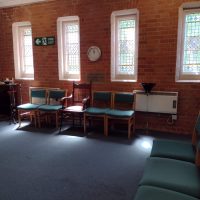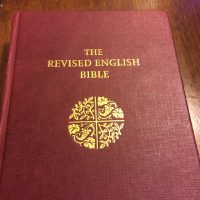The United Reformed Church’s General Assembly continues discussion on the marriage of same-sex couples
On Saturday 27 June, the General Assembly of the United Reformed Church met or a one-day, one-issue Assembly, at Carrs Lane Church, Birmingham to discuss how local United Reformed churches might respond to recent legislation on the marriage of same sex couples.
The substantive resolution before General Assembly suggested it is not possible for the denomination to express a single view on the issue of same-sex marriage. It proposed therefore that the decision on whether an individual United Reformed Church congregation can host marriages of same-sex couples should lie wholly with each local church. Those churches who do not wish to offer marriage services to same-sex couples are not compelled to do so.
After an extended period of debate and discussion a wide variety of views were aired. The resolution was then passed with a small number dissenting.
A further procedural resolution, which proposed that the decision be referred back to the synods for a period of further consultation before marriages of same-sex couples can be enacted in United Reformed churches, was then discussed. As with the substantive resolution, Assembly members expressed divergent views. Some argued strongly that there had been enough consultation already and that the Church should now “just get on with it” and “own the decision it had just made” by enabling local churches to enact marriages of same-sex couples immediately. Others spoke equally earnestly in favour of referral, arguing that the complex and sensitive nature of this issue (which some in the denomination believe raises constitutional questions) demanded extra time and a more elaborate process of formal ratification. A vote under majority voting rules was held and the procedural resolution was carried with 184 members of Assembly voting in favour, and 30 members against.
The Revd John Proctor, General Secretary of the United Reformed Church, said: “Today the Church took a significant step. The Assembly has confirmed that the proper place for this decision, in a Church that devolves much of its authority, is in the local congregation.”
The substantive resolution will now be referred back to the denomination’s 13 synods for a nine-month period of further consultation which will end on 31 March. If more than one third of the synods (five or more) vote against the proposal then it falls; otherwise it would be brought back to General Assembly in July 2016, where a two-thirds majority would be able to confirm it as the Church’s final decision.
(from News Update, URC)






